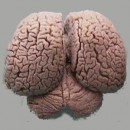Computer-Assisted Instruction for the Special Education Teacher (1985)
One of the most surprising findings about CAI is that it is not the brightest students who benefit most from it, but rather the below-average pupil who stands to benefit more
Read MoreGhost Story Collection (1974)
When I took MTSU’s only class in folklore I debated telling the instructor, Professor Ralph Hyde, that my father-in-law was Leonard Roberts, one of the pre-eminent folklorists in the United States. I decided to withhold that information. When I told Dr. Hyde at the end of the semester I could see him mentally replaying the entire course to see if he might have said anything that could have been taken negatively. He hadn’t.
Read MoreTraining Paraprofessionals to Make Data-Based Training Strategy Decisions (1986)
A number of studies have shown teachers can be successfully trained to collect and analyze data daily using trend and error analysis techniques and to make resulting educational decisions that lead to improved student performance. Effects have tended to be positive across a variety of academic tasks and a variety of handicapping conditions, as well as across a range of educators and a variety of settings. However, the use of data-based instructional decision-making has not been widespread.
Read MoreGeneralization and Maintenance in Social Skills Research (1991)
The question of generalization and maintenance in applied behavior analysis is considered by most researchers to be one of crucial importance. Although Skinner addressed the issues of generalization (transfer of stimulus control to objects without a history of reinforcing the organism) and maintenance (exhibition of operant response after the discontinuation of the artificial reinforcement schedule) as early as 1938 in his work with nonhuman animals, it was Stokes & Baer (1977) who clearly and concisely brought the importance of these phenomenon to the attention of the behavior analytic community.
Read MoreRecent Research on Computer Assisted Instruction (1986)
While it could perhaps be argued that microcomputers have yet to cause great changes in the fabric of our educational systems, there is little doubt they have caused great changes in the publishing industry. Besides the publication of innumerable books, many popular magazines and scholarly journals have devoted whole issues to microcomputers. And one of the most popular topics is the use of computers in school. Unfortunately, an astonishingly large percentage of computer-related articles in even our most prestigious journals is speculation and opinion— informed speculation and opinion, perhaps, but speculation and opinion nonetheless.
Read MoreInstruction Via Television (1985)
Conclusions about the efficacy of instructional or educational television have been equivocal. This may be due in part to different conceptions of the subject material by different authors; obviously, a closed-circuit lecture and the NOVA or Sesame Street programs are dissimilar. Therefore, what seem to be differences of opinion may sometimes be differences of terminology.
Read MoreComputer-Assisted Instruction and the Handicapped Child (1984)
In 1954, B.F. Skinner published a paper in Harvard Educational Review in which he proposed the use of mechanical educational devices which operated on principles of operant conditioning (Pagliaro, 1983). He called these devices teaching machines, and the instructional method he named programmed Instruction. In the 1950s a number of Programmed Instruction teaching machines were placed in public schools. During the 1960s, computers, which were then large and quite expensive, were used to the same ends.
Read MoreSome Issues of Dual Diagnosis (1986)
Individuals who have been certified as mentally ill and mentally retarded are said to be “dual diagnosed.” Because there is a high rate of mental and emotional illness in retarded persons, there is a considerable population of dually-diagnosed individuals. This paper provides a brief discussion of policy, diagnostic, arid treatment issues of dually-diagnosed individuals.
Read MoreMy Major Area Paper, Vanderbilt University (1994)
This is my major area paper for the Ed.D. at George Peabody College of Vanderbilt University.
Read MoreMy Master’s Thesis (1979)
For my thesis, I investigated the feeding behavior of the common garter snake, Thamnophis sirtalis sirtalis, in the laboratories of Gordon Burghardt at the University of Tennessee in Knoxville.
Read MoreUsing the TRS‑80 Model 100 Portable Computer as a Data Collection Device (1985)
BOSCO, The Behavioral Observation System— COmputerized, allows the TRS-8O Model 100 portable computer to be used as a relatively inexpensive data collection device instead of more expensive dedicated devices such as ElectroGeneral’s DATAMYTE and Observational Systems’ OS-3. BOSCO, a program written in BASIC for the Model 100 with expanded memory, has been used to collect real-time behavioral data in field research studies.
Read MoreThe Potential of Microcomputers as Teaching Machines for Individuals with Severe Handicaps (1987)
Although it is hardly possible to predict the exact manner in which microcomputers will change the lives of persons with severe handicaps, it is possible, by considering the unique abilities of these machines, to speculate about ways in which they could be of major benefit. Four characteristics make microcomputers especially suitable tools for working with persons with severe handicaps: programmability, the ability to respond to environmental events, the ability to provide reinforcing consequences for behavior, and the ability to keep detailed and precise records.
Read MorePica: Some Suggestions for Future Research (1987)
Pica is the purposeful ingestion of objects generally considered nonedible. This was one of my papers for qualifying exams.
Read MoreThe Advantages of Microcomputers for On-site Collection and Analysis of Behavioral Data (1987)
This was one of the papers for my qualifying examination at Vanderbilt University.
Read MoreEffects of a Learning Task and of Forewarning Upon Responses to Ambiguous Figures (1975)
This was my first-ever research paper. And yes, it shows.
Read MoreThe Role of Intellectual Assessment at Greene Valley Developmental Center (1980)
Greene Valley is one of the best developmental centers in the world and is the last state-operated developmental center in Tennessee.. It has nevertheless been reduced in size by the state government and will probably soon be closed.
Read MoreUsing a Discrimination Task to Teach Scanning to Severely Physically Impaired Non-Vocal Children (1984)
“All a Board” is an augmentative communication computer program which was designed by the author to allow individuals with very severe physical handicaps to communicate their wants and needs to others, using a single switch. It serves the same purpose as any communication board, but requires much less physical ability.
Read MoreReview of EZ-SCAN (1993)
EZ-SCAN is a memory-resident software program for MS-DOS computers. It enables an individual to access all keyboard functions via a single switch attached to a joystick port. Selections are made by multiple switch entry.
Read MoreTeaching Cooking Skills to a Man With Dual Diagnosis Using Backward Chaining (1993)
To increase his domestic skills, the interdisciplinary team decided at Mr. Packer’s annual habilitation planning meeting that he would have a goal of learning to prepare a meal independently. The time frame for the goal was one year. The house manager was asked to develop the instructional plan.
Read MoreStereotypic Behavior in Persons with Mental Retardation (1994)
In children and adults with mental retardation, and particularly in those who are severely or profoundly impaired, stereotyped behaviors are very common. Special educators do not typically get to watch the origin of these behaviors; rather, they are often confronted with well-developed behaviors which appear to be nonfunctional and can occur with such great frequency as to make training difficult.
Read MoreEuthanasia in Persons with Mental Retardation: More Than in the Wind (1993)
As we approach the Millennium, euthanasia is officially outlawed in the United States (Lusthaus, 1985), but it is a frequent topic in professional and philosophical journals, just as happened in pre-World War II Germany (Wolfensberger, 1981). The Germans “thought the unthinkable” a decade or more before actually beginning to do it. If we are not currently thinking the unthinkable, we have at least been discussing it in our professional journals for the last decade and more.
Read MoreCerebral Palsy (1994)
Cerebral Palsy is the name of a variety of nonprogressive brain defects which occur during the prenatal, perinatal, or early postnatal periods, and which result in motor impairment (What everyone should know about cerebral palsy, 1977). It is not “a disease in any medical sense” (Crothers & Paine, 1988, p. 1), but can arise for any number of reasons. It causes major disability and is associated with a variety of other disabling conditions, including epilepsy, mental retardation, and sensory deficits.
Read MoreThe Ability of Mentally Retarded Persons To Judge Facial Expressions From Photographs (1986)
Read MoreGID In Relation to Handicap and Disability (1993)
Is transsexualism a handicap? If having a handicap means that one of more of one’s life activities are substantially limited, then certainly transsexualism, which can result in estrangement from family, divorce, court-enforced separation from minor children, loss of employment, public humiliation, and general rejection by society, can be a handicap.
Read MoreEssays From High School (1965-1967)
Here you’ll find three essays from 11th and 12th grades in high school.
Read MoreNormal and Abnormal Stereotyped Behaviors in Humans and Infrahumans (1986)
All vertebrates exhibit rhythmic, repetitive behaviors. Some of these behaviors are normal and functional, but others are abnormal and non-functional. When the behaviors are abnormal, they are called stereotypies. Studies of normal rhythmic behaviors and abnormal stereotypies in both human and non-human animals are discussed. The importance of comparing normal and abnormal rhythmic behaviors in both human and non-human animals is stressed.
Read MoreThe Video Game: Its History and Significance (1981)
I saw my first pinball machine in Bisbee, Arizona, in a little market that backed up to the huge open pit copper mine that dominates that town. It stood in the corner, lights lazily flashing, dark-tressed temptresses beckoning for my dimes. It had no flippers. I put a coin in the slot and shot five steel balls up the long chute to plop solidly in various holes. “This is it?” I asked myself. “This is it?”
Read MoreAugmentative Communication Systems: Suggestions for Improvement of Selection Strategies (1984)
Many persons with a wide variety of disabilities are unable to speak. Those with good physical mobility can learn to effectively use American Sign Language, pencil-and-paper, battery-operated electric typewriters or memowriters, or other communication aids or systems (Silverman, 1980). However, the severely physically involved, non-vocal person— for instance, children with cerebral palsy, stroke victims, and those with degenerative neurological or muscular diseases such as Amyotropic Lateral Sclerosis or Muscular Sclerosis, may lack the voluntary control to use even a lap board with words or symbols drawn on it.
Read MoreA Look At Some Abilities Which Are Similar In Humans And Nonhumans (1986)
Homo sapiens shares with other mammals many basic aspects of brain functioning. While our brains of course have specific adaptations which reflect our cognitive and language abilities, the basic mammalian plan is present, and learning, memory, and perhaps cognition are only quantitatively different from other mammals. Many of our abilities may be relatively independent of our much-touted intelligence. This paper will present a discussion of cognitive and language abilities in non-human animals, and will conclude with some speculations about some areas of functioning which do not require high intelligence, yet which are quite complex.
Read MorePair Bonding and Sexual Division of Labor (1976)
To what extent behavior is hereditary and to what extent it is learned will probably always be an unresolved problem, but I have been convinced from studying animal behavior that nature plays an important part in behavior. Pair-bonding and sexual division of labor almost certainly have hereditary components.
Read MoreA Brief Analysis of the Constitutional Right Of the Mentally Retarded To Refuse Psychological Treatment (1985)
For more than a century, mentally retarded individuals have been commonly segregated in residential institutions. Common reasons for placement in such institutions are simple intellectual deficiency and behavioral disturbance. The institutions were originally purely custodial, where “undesirable” individuals were placed so that the sensibilities of other citizens need not be offended by looking at them.
Read MorePreening Behaviors of Flies (1984)
Casual observation of the common housefly, Musca domestica or of related species will reveal that these insects spend a good deal of their time in preening movements. Although there is some evidence that preening has functions other than cleaning, the terms preening, grooming, and cleaning have been used interchangeably in the literature, and will be so in this paper.
Read MoreSelf-Injurious Behavior In Lesch-Nyhan Syndrome (1985)
Lesch-Nyhan Syndrome is of particular interest because of the clear-cut relationship between a deficiency of a single enzyme and a pathological behavior (self-injurious behavior)
Read MoreNew Regulations for the Treatment of Animals in Behavioral Research: Their Significance for the Treatment of Individuals with Disabilities (1987)
In recent years there has been considerable controversy regarding “Baby Doe” cases in which a disabled infant is allowed to expire from want of food and water. This has been ethically justified by classifying food and water as “treatments” and then withholding treatment . Such a procedure would be both unethical and illegal under current guidelines and regulations for the treatment of animals
Read MoreThe Strange Case of Mimicry in the New World Coral Snakes: A Review (1985)
This paper reviews the theoretical and empirical contributions to the literature of coral snake coloration and examines the plausibility of the various proposed causal mechanisms. Natural selection operating on predators is proposed as the mechanism which is most likely to be responsible for the evolution of and maintenance of coral snake mimicry.
Read MoreFear and Loathing in Lebanon (1986)
My attorney leaned past me and thrust a copy of Public Law. 94-142 at the Mercedes. “Free and appropriate public education for all handicapped,” he screeched. “In the least restrictive goddamned environment!” It was too much for the Mercedes. The driver slowed and took the Stewart’s Ferry exit. My attorney looked at me. “I think that was the Superintendent of Clover Bottom,” he said.
Read MoreA Discussion of Stereotypic Behavior in Normal Infants And Developmentally Delayed Individuals (1985)
This paper defines stereotypic, or rhythmic, behavior. The stereotypies of normally developing infants are discussed and compared with the stereotypies of institutionalized individuals with developmental delays. Animal studies are cited, where relevant.
Read More


















